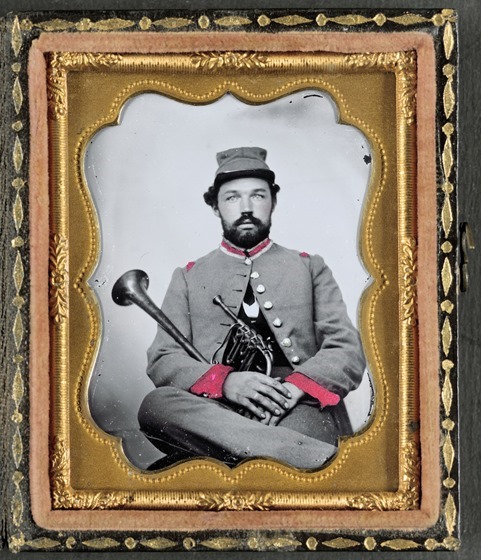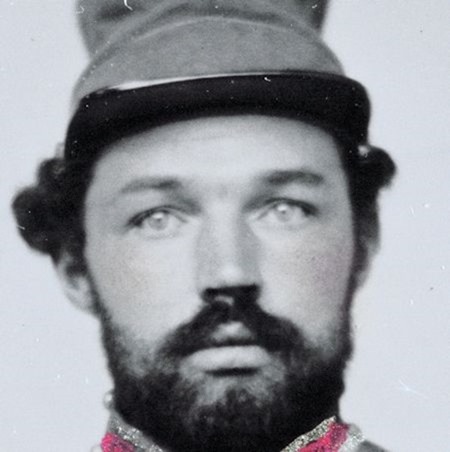December 17.—From his headquarters at Memphis, Tenn., General Hurlbut issued the following general order: “The recent affair at Moscow, Tenn., has demonstrated the fact that colored troops, properly disciplined and commanded, can and will fight well, and the General commanding deems it to be due to the officers and men of the Second regiment West-Tennessee infantry of African descent, thus publicly to return his personal thanks for their gallant and successful defence of the important position to which they had been assigned, and for the manner in which they have vindicated the wisdom of the Government in elevating the rank and file of these regiments to the position of freemen and soldiers.”
—The Richmond Enquirer, in an article on the exchange of prisoners, held the following language: “The Yankees are not going to send their negro troops in the field: they know as well as we do that no reliance can be placed upon them; but as depot-guards, prison-guards, etc., they will relieve their white troops. This is the use that will be made of them. Should they be sent to the field, and be put in battle, none will be taken prisoners—our troops understand what to do in such cases.”
—President Lincoln sent a message to the Congress of the United States, communicating a letter addressed to him from a committee of gentlemen, representing the Frcedmen’s Aid Societies of Boston, New-York, Philadelphia, and Cincinnati, in relation to the freedmen under the proclamation of emancipation.—The United States bark Roebuck captured off the mouth of Indian River, Florida, the English schooner Ringdove, twenty-three tons burden, of and from Nassau, with a crew of five men. Her cargo consisted of one hundred and ninety bales of salt, three bags of coffee, two half chests of tea, and three barrels of whisky. When first discovered, she attempted to escape, but on being fired at, ran aground on the bar.
—For several days past the detectives at Richmond, Va., have been on the hunt for parties who are either suspected of stealing the clothing sent by the Yankee Government for the prisoners now in our hands, or receiving the same, knowing it to have been stolen. Several soldiers, wearing the confederate uniform, have lately been seen with blankets branded “U. S.,” and in some cases, shoes, with the Yankee mark on them, have been sold to citizens at uncommonly low figures by some of the guards of the prisons. Several individuals have been arrested on the above charge.—Richmond Examiner, December 19.
—Colonel Carter, of the First rebel Virginia cavalry, with six other persons, was captured at Upperville, Va., by a detachment of the Twenty-second Pennsylvania cavalry.—An entire company, belonging to the Third North-Carolina rebel cavalry, was captured near Washington, N. C, by a party of the Fiftieth Pennsylvania regiment, commanded by Captain Blakely. Yesterday, at sunset, the Nationals left Washington, and after a march of twenty-four miles, came upon the enemy’s camp. The night was dark and rainy, rendering it possible for the troops to come upon the rebels unheard, and a complete surprise was consequently effected, the enemy being taken in their tents asleep, without the firing of a gun. The number taken was thirty-four, with their horses, equipments, and arms. The surprising party was led by Mr. Henn, who acted as guide, and who previously had been of great use upon cavalry expeditions. On this occasion he entered the rebel camp alone in advance of the attack, and reconnoitred the enemy’s position.—The rebel partisan Standwaite, with a portion of his force, made an attack upon the outposts of Fort Gibson, Ark., but was repulsed, and compelled to retreat across the Arkansas River.—A body of Stuart’s cavalry made a descent at eight o’clock this night upon company I, of the One Hundred and Fifty-fifth New-York regiment, stationed at Sangster’s, three miles west of Fairfax Station, Va., slightly wounding one man, capturing four, and burning the tents belonging to the company. The attack was unexpected, but, nevertheless, the guard made a gallant defence. On being charged upon by the enemy, they withdrew behind their encampment, pouring in repeated volleys upon the rebels, and finally compelling them to retire.












